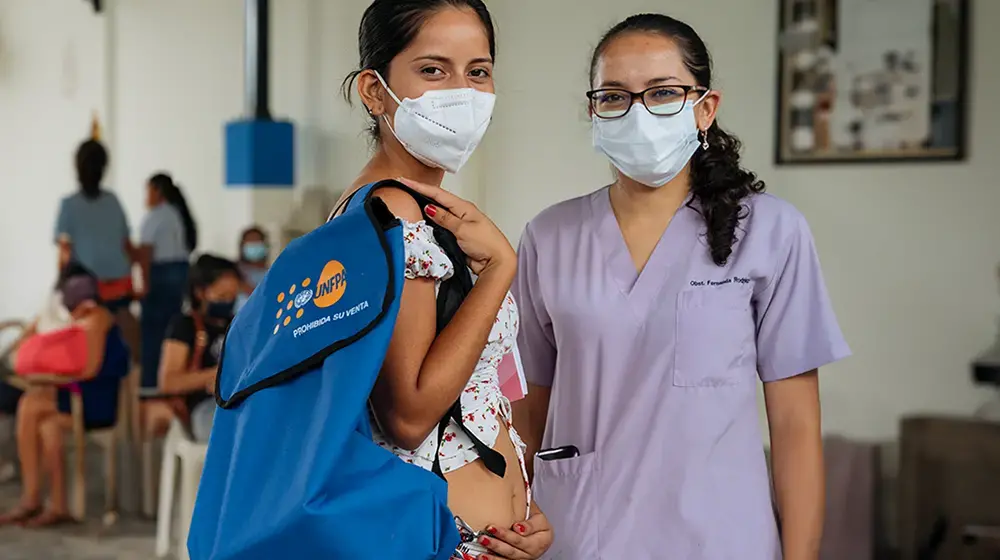The University San Francisco de Quito (USFQ) and the United Nations Population Fund (UNFPA) have signed a memorandum of understanding establishing a strategic alliance to strengthen the generation, analysis, and dissemination of high-quality data.
Demographic dividend
News
USFQ and UNFPA sign a cooperation agreement to improve data-driven decision-making in Ecuador
26 July 2024
News
Work Plan signed between the National Planning Secretariat and the UNFPA
30 July 2024
The National Secretary of Planning, Sariha Moya, and the Representative of the United Nations Population Fund in Ecuador (UNFPA), Markus Behrend, signed an Annual Work Plan until June 2025 that will enable the generation of the first Population Situation Analysis for Ecuador and the Prioritization of Information for the Strengthening of Administrative Records for Planning. These products constitute relevant inputs for national and territorial planning. Likewise, it will serve to strengthen the National Information System.
Focusing on ensuring that all people are counted and represented by improving national demographic data systems needed to identify and reduce inequalities.
High-quality disaggregated data is key to monitoring the Sustainable Development Goals (SDGs), Montevideo Consensus indicators and evidence-based interventions in development and humanitarian contexts.
The strategies are aimed at:
Featured Content
Statement
A world of 8 billion: Towards a resilient future for all
14 July 2022
In 2011, the world reached a population of 7 billion. This year, the number will hit 8 billion, prompting the attendant responses. Some will marvel at the advancements in health that have extended lifespans, reduced maternal mortality and child mortality and given rise to vaccine development in record time. Others will tout technological innovations that have eased our lives and connected us more than ever. Still others will herald gains in gender equality.
News
World Population Day: The Population, Housing and Communities Census, an innovative instrument to guarantee the rights and choices of all people in Ecuador.
15 July 2022
For World Population Day, the National Institute of Statistics and Census (INEC) and the United Nations Population Fund (UNFPA) developed the Virtual Seminar "The importance of the Census of Population, Housing and Communities to guarantee the rights and options of all people".
This seminar generated a space for reflection and analysis on the importance of the Census to obtain updated socio-demographic information for Ecuador, which allow us to know the population, their needs and the underlying factors that lead to structural discrimination and intersectional inequalities.
Statement
Ecuador welcomes the 2022 census
11 July 2022
By: Markus Behrend, UNFPA Representative in Ecuador
This year the world's population will reach 8 billion people. Poverty has been reduced and important advances have been made in health care and in reducing mortality. People are living longer and healthier lives.
The Potential and Challenges of Ecuador
The Potential and Challenges of Ecuador
-
The Constitution of the Republic recognizes the rights to gender equality, to a life free of violence, and to sexual and reproductive rights.
-
Ecuador has a population of 17,510,643 inhabitants. 51 % are women and 49 % are men, 64 % live in urban areas and 36 % in rural areas.
-
Ecuador's demographic is young, 38 % are under 20 years of age and 11 % are over 60 years of age. Life expectancy is currently 80 years for women and 74.5 years for men.




